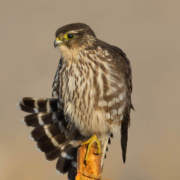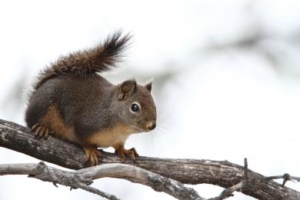Persimmon Tree
Remember earlier this year when I spent 100 days sending out my work?
Here are two of the results of that blitz, both of which hit my in-box or mailbox this week.
The first is a creative nonfiction essay — “About a Marriage, from A to Zed” — in the superlative Persimmon Tree: an On-line Magazine of the Arts by Women over Sixty. Click HERE to read my essay. The entire on-line issue is free (donations welcome).
“About a Marriage” was featured in the promotional email, with this thumbnail review:
This inventive and constantly intriguing essay does just what the title says. But Bethany Reid’s alphabet is like no other. The referent for each new letter is so unexpected that, by the time she has brought us all the way from A (for anorexia), stopping briefly at F (for Fight or Flight), and S (for Spaghetti, of course), nothing that Z could possibly stand for will surprise us. Or maybe it still can.
As a bonus, when I visited the page, I found comments from three complete strangers. (I guess I can stop saying that only my friends read what I write.)
The Passing of Windfall
The other publication is a print one, and a long-time favorite of mine, Windfall: A Journal of Poetry and Place. 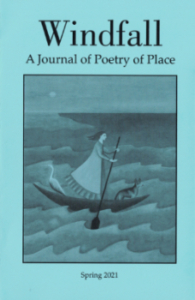 It was with genuine sadness that I learned the next issue will be Windfall’s last. “We have never broken even on any issue in twenty years,” the editors admit in their foreword. “Now the costs have risen above our capacity to absorb them.” All I can say is, this is a crying shame.
It was with genuine sadness that I learned the next issue will be Windfall’s last. “We have never broken even on any issue in twenty years,” the editors admit in their foreword. “Now the costs have risen above our capacity to absorb them.” All I can say is, this is a crying shame.
My subscription ran out on this issue, so I’ll be sending $7 to get the last issue. I hope you’ll consider joining me, and maybe purchasing Fall 2021 or other back-issues as well.
Fall 2021, well worth the cost, features poems from 27 northwest writers — including Christopher Howell, Penelope Scambly Schott, Donna Mendelson, and Carlos Reyes. It ends, as does every issue of Windfall, with an essay about poetry and place, written by editors Bill Siverly and Michael McDowell. (All of the essays are available at their website.) The essay for this issue, “Monuments and Poetry of Place,” included several poems. Here’s one:
Standing beneath the Statue of Sacagawea in Washington Park during the Racial Justice Protests of 2020
“a woman with a party of men is a token of peace” —Captain William Clark, 1805
Bronze traveler with baby on your back,
twenty tons of Oregon copper were mined
to make you. You’re looking beyond me.
From where I stand you’re unreachable.
Across the world people are tumbling
statues, taking down old heroes (now pariahs)
and erecting new ones, renaming buildings,
mascots, boulevards, dreams.
Bird Woman, what do we do with you?
We aren’t sure how to say your name,
we don’t know when you were born or died,
but we know you, a chief’s daughter, were never paid.
What if the Hidatsa had not kidnapped
you and forced you into slavery?
What if your Hidatsa man hadn’t lost at gambling
and traded you to Charbonneau to pay the debt?
Young native sold to white man.
Small woman helping men.
Some might call you traitor.
Some might see you as victim.
You are the axis, pathfinder, key.
Without you there would have been
no horses, no foraging of forest food,
no otter robe, no shared language.
As a girl I played here years ago with my sisters.
On hot August evening we ate barbequed chicken
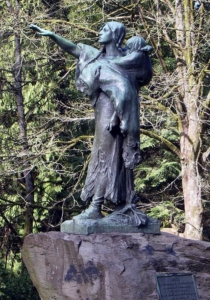
Washington Park statue of Sacajawea and her baby, from Wikipedia
on paper plates with sweet corn and coleslaw.
Barefoot, we ran circles around you.
Lemhi Shoshone woman, strong swimmer,
cooking camas, keeping peace,
when I walk alone in old forests
of ambiguous shapes, I almost see you.
—Christine Colasurdo
Click on this link to visit Windfall to purchase a copy. You’ll find a form to print out and mail in with your check (beautifully old-school).

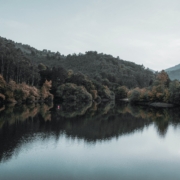
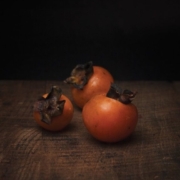
 It was with genuine sadness that I learned the next issue will be Windfall’s last. “We have never broken even on any issue in twenty years,” the editors admit in their foreword. “Now the costs have risen above our capacity to absorb them.” All I can say is, this is a crying shame.
It was with genuine sadness that I learned the next issue will be Windfall’s last. “We have never broken even on any issue in twenty years,” the editors admit in their foreword. “Now the costs have risen above our capacity to absorb them.” All I can say is, this is a crying shame.
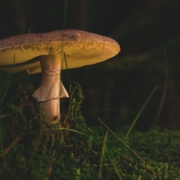
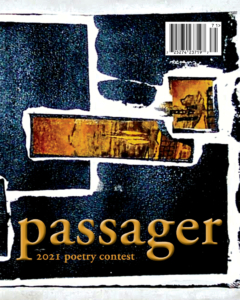 next hour, reading poem after poem. It’s a wonderful issue, and I’m happy to recommend it—and not only because it includes a poem of mine.
next hour, reading poem after poem. It’s a wonderful issue, and I’m happy to recommend it—and not only because it includes a poem of mine.